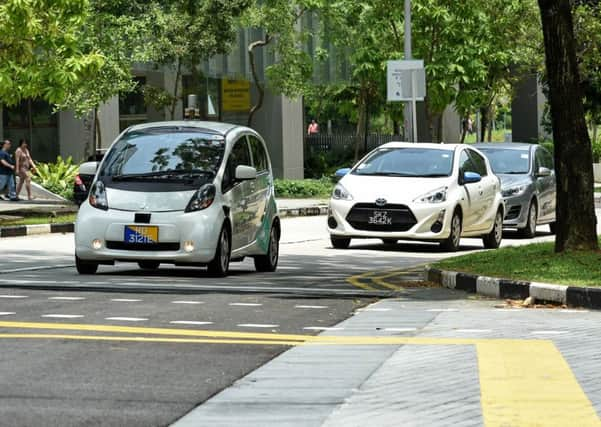Letting self-drive cars break speed limits a ‘calamitous mis-step’


The alarm has been raised after an official consultation into how autonomous vehicles are regulated sought views on whether they should be programmed to permit speeding.
The Scottish Law Commission said it could be for safe overtaking, avoiding sharp braking at the start of a lower limit, or to “improve traffic flow”.
Advertisement
Hide AdAdvertisement
Hide AdThe commission has only broached the subject, but this has sparked concern that it is even being discussed as a possibility.
The consultation stated: “There are three main policy arguments for allowing automated vehicles to be programmed to exceed the limit [such as up to 35mph in a 30mph zone].
“These are in the interests of safety, for example to overtake a vehicle as quickly as possible to avoid a collision. Some tolerance might prevent overly sharp braking, for example, on reaching a lower speed limit sign. It has been suggested by some stakeholders (and disputed by others) that exceeding the speed limit might sometimes be helpful to maintain traffic flow. The issue is clearly controversial and we have not yet reached any conclusions. We welcome views.”
Cycling Scotland, the Scottish Government-backed cycle promotion body, said it was horrified. Chief executive Keith Irving said: “Fully autonomous vehicles are a legal and ethical minefield for society, with potential drawbacks as well as possible benefits.
“The technology is many years away from coping with real-world conditions of rural and urban Scotland, but the fact that arguments are already being made to allow autonomous vehicles to break the speed limit beggars belief. Our towns and cities can be dominated by vehicles – often speeding – we have a public health crisis fuelled by inactivity, and there are widening inequalities in the affordability of transport. These are the transport priorities to resolve. Designing autonomous vehicles to speed even faster around our towns would be a calamitous mis-step for everyone.
Motoring group IAM Road-Smart has also responded to the consultation with a firm “no”. Scotland-based policy and research director Neil Greig said: “IAM RoadSmart members are trained to adhere to speed limits and this should equally apply to all automated vehicles at all times. Automated vehicles should never break the speed limit.”
The Scottish Government’s Transport Scotland agency said safety was paramount, but did not comment directly on the case for speeding.